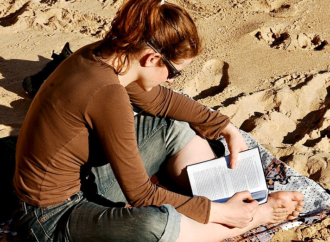Most Read from past 24 hours
Where All the Men Have Gone – and How to Bring All the Men Back
- Culture, Family, Featured, Uncategorized, Western Civilization
- July 9, 2025

If literature were a food pyramid, a ranking of vitamins and nutrients for the mind and soul, the classics would be the equivalent of steak, eggs, and fish, books high in intellectual protein like Leo Tolstoy’s “War and Peace,” Sigrid Undset’s “Kristin Lavransdatter,” and F. Scott Fitzgerald’s “The Great Gatsby.” Next would come the fruit
READ MORE
Let’s begin, as so many good things begin, with the dream. For years, conservative political activist, wife, and mother Connie Marshner of Front Royal, Va., dreamed of opening a private library, one aimed particularly at children. “I had collected books forever, especially children’s books, because I believe so strongly in beauty and beautiful books,” Marshner
READ MORE
A recent study published in Scientific Reports uncovered that the average reader couldn’t tell the difference between AI-generated poetry and human-written poetry. Most of these readers even preferred the AI works to the human ones. In the study, researchers asked Open AI’s ChatGPT-3.5 to write poems in the style of famous poets such as Walt
READ MORE
George Orwell, one of the most influential political writers of the 20th century, is widely recognized for his searing critiques of totalitarian regimes in his novels Animal Farm and 1984. Orwell’s portrayal of state control, propaganda, and the manipulation of truth has resonated with readers across the political spectrum. However, Orwell’s personal political ideology and his critiques of totalitarianism
READ MORE
In a recent piece for the New York Times, Drew Lichtenberg, the artistic producer at the Shakespeare Theater Company in Washington, laments the closing of the California Shakespeare Theater and the widespread decline in productions of Shakespeare across the country. The reasons, he suggests, have to do with many things, including the expense of mounting a
READ MORE
Stories hold a powerful sway over the human spirit. They reach us on the deepest levels, moving, inspiring, instructing, and even healing us, as modern therapeutic practice has shown. Stories and poems consolidate and interpret random occurrences and emotional and sensory activity—the raw inputs of experience—into a meaningful whole. This allows us to understand reality
READ MORE


